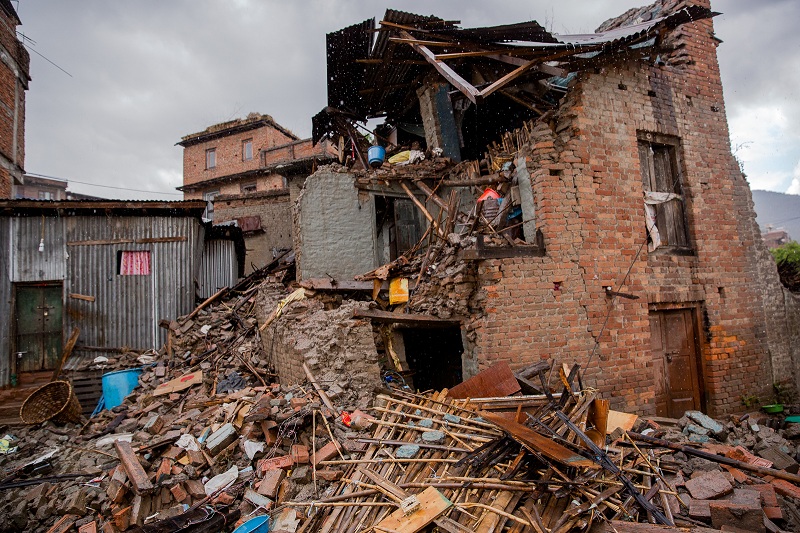The earthquake came violently and brutally, but when it left, the suffering it had caused remained. Now Islamic Relief’s Fadi Itani reports that we are in a race against time to help those affected before the monsoon season starts.
The earthquake occurred on 25 April, at 11.56am local time, measuring 7.9 on the Richter scale. It caused a recorded 7,676 deaths, with 16,392 people injured, 284,455 houses destroyed, and 234,102 houses damaged.
The world rushed to help, with humanitarians catching the first available fights, and the media giving it top priority coverage and sending teams to report on it. Aid was sent but at first could not get through as the airport was not prepared for the volume of traffic needed. The aid started piling up at the airport, and flights could not get clearance to land, humanitarians started to get frustrated.
People continued to suffer.
When we provide food parcels, we consider their nutritional value, but also try to ensure the food items are acceptable to the local community and contain food the locals are used to. We also try to purchase them locally to support local businesses. Sometimes small mistakes are made and communities are given food that they do not feel comfortable with. It is a small detail, but makes a big difference to the communities we seek to serve. These errors seamlessly disappear the more we work with local partners and build up local knowledge, and we’ve been working through local partners and volunteers from the first day of our response. This kind of coordination and information sharing, with both local and international NGOs, is needed for many reasons, and, at Islamic Relief, we want to see more of it.

In the short term, though, people are still struggling and the monsoon season is imminent. The rain will start to fall more frequently in mid-May with the monsoon season beginning in earnest in mid-June, when monthly precipitation levels in the valley will reach between 300 and 800mm. Erratic weather patterns globally mean the rainfall varies every season; severe flooding, for example, was caused in 2013 when 220mm of rain fell in just one day.
Even if this year, Nepal experiences a mild monsoon, there will still be three to four months of continuous rain and humid weather that will cause real problems for the thousands of people who are out sleeping next to the rubble of their homes.
People are at risk of suffering more.
I cannot imagine how children, the elderly and those who have been injured will survive this tough weather with no proper shelter.
The monsoon season might cause more landslides and mudslides. These usually occur during the monsoon season, but the earthquake has now shaken mountains and hills. We have to acknowledge that many landslides and mudslides are a possibility. With villages based in the shadows of those mountains and hills, I worry what will happen to them and their residents if landslides do occur.
On one journey to assess needs, we struggled on the dirt roads to reach the villages of Madanpur and Kumani, based in the mountains in the district of Nuwakota. The weather has been fine. When the monsoon arrives, those roads will turn into a sea of mud that will be difficult to walk up, let alone drive along. It will be a real challenge to deliver aid, tents and shelter in those conditions.
Temporary shelters are urgently needed and before the media and the rest of the world turn the page on Nepal we must remember the challenge facing local people. It will take the people of Nepal years to rebuild their lives. Their realities must not be forgotten.
Help us lessen their suffering. Support our emergency appeal.
Donate









